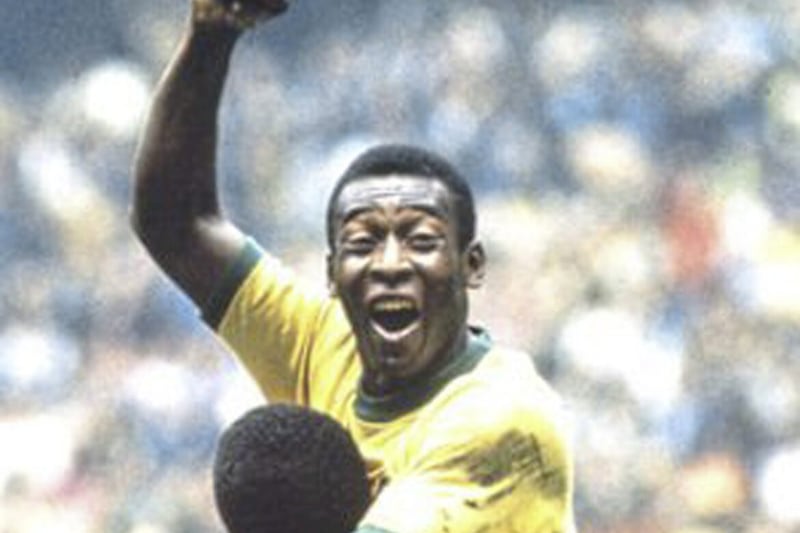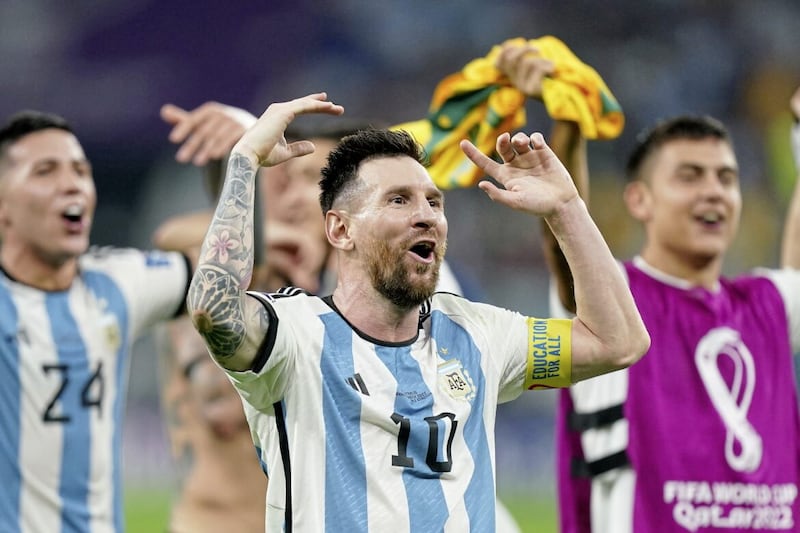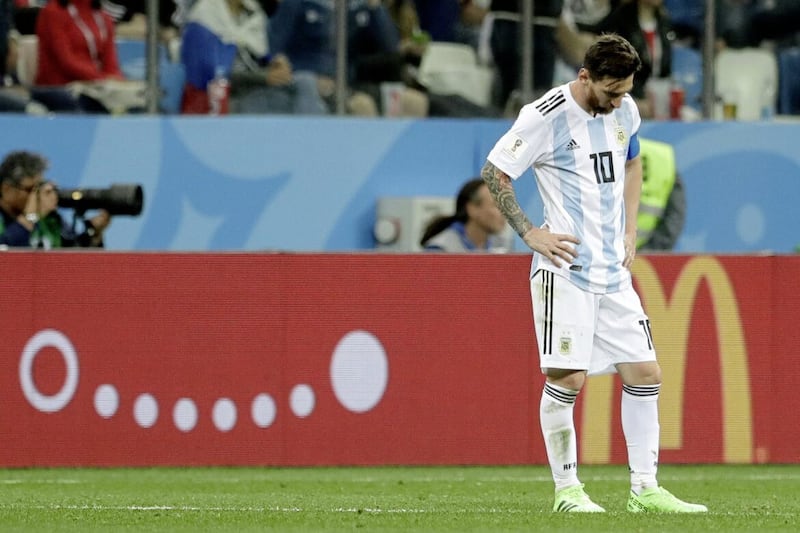ASIF Kapadia is treading new territory in his latest piece of work.
The London-born director, 47, has previously found success with Amy, the Oscar-winning documentary about British singer-songwriter Amy Winehouse, and Senna, which centres around Brazilian Formula One star Ayrton Senna.
But while they were "sad and tragic stories of two brilliant people dying very young", new feature Diego Maradona "became an idea of, what happens if you get old and you've got this amazing gift?".
Incorporating never-seen-before footage and interviews with Maradona himself, it explores the career of one of the greatest footballers of all time, while also looking into the Argentinian's "crazy" personal life.
As a big football fan, it was an idea that had been in the back of Kapadia's head since he was a student.
"I didn't know what the story was going to be," he confides. "I didn't know whether or not I'd like him, even. It's actually happened along the way.
"I didn't love Senna going in, I didn't really necessarily love Amy going in; it was during the process I kind of fell in love with them."
When the Maradona project first started, back in 2015/2016, the filmmaker recalls he wasn't really sure what was going to happen within the industry: "Everything seemed to be shifting towards a lot of these digital companies coming along."
He viewed the documentary as the final instalment of a "trilogy" (Senna and Amy were parts one and two).
"I thought, 'Well, this might be the last chance I get to make a feature film like this again'," he elaborates.
"I really enjoyed watching Amy and Senna on a big screen with an audience - quite collective emotions and experiences.
"I thought, 'I'd love to see this [Diego Maradona] in Argentina with a crowd, or Naples with a crowd, or even in England'."
Kapadia, who's married to writer and director Victoria Harwood, admits it was daunting to think about meeting the notorious sportsman, who is now aged 58 and lives in Dubai.
After all, he's not "necessarily very lovable and likeable when you think about him". Then, there's the challenge of the language barrier – Maradona doesn't speak English, and Kapadia doesn't speak Spanish or Italian.
The story focuses primarily on the protagonist's time at Italian club Napoli. They were struggling and run down, but the footballer, who had won the World Cup with Argentina in 1986, ended up leading them to win two national league titles in 1987 and 1990.
During that time, Maradona's cocaine addiction was spiralling out of control, and he was also beginning to associate with members of the region's notorious organised crime underworld.
Getting him to talk about such situations, and his memories of it, was tough at times. So, how did Kapadia win over Maradona's trust in the end?
"I don't know if I ever won over his trust, if you put it that way," he suggests.
Discussing the process further, he says: "We needed his image rights to make this film, we needed access to that behind-the-scenes private footage, and part of the deal was I'd get to talk to him three times, for three-hour interviews."
But, Kapadia explains, nine hours isn't actually a huge amount of time, especially when you compare it to the access he had for Senna and Amy.
"And in the end, actually, his attention span was probably 90 minutes. So it's not a long time. And it's not easy."
But he continues avidly: "You could see actually once he got engaged, his eyes lighted up and he started smiling and he's actually really charming, he's really charismatic.
"When he's in the right frame of mind, you're thinking, actually, I like this guy."
In the end, Kapadia points out Maradona does talk about several "challenging" things, including relationships with the underworld, women, and "his kid that he didn't recognise".
He also discusses arguably the most iconic moment in football history: the Hand of God. During the quarter-final game against England in the 1986 World Cup in Mexico, Maradona scored a goal in which he seemed to use his left fist, not his head.
It came amid high tensions four years after the Falklands War between Britain and Argentina ended, and is one of the reasons why Maradona has potentially divided people's opinions over the years.
Asked whether he thinks there has ever been another footballer as good as Maradona, or if there ever will be, Kapadia notes: "I'm that sort of generation of football fan where football then was just violent. The fouls that you could do then – for obvious reasons – you aren't allowed to do anymore.
"Now, you just touch someone and they roll around and they get a penalty. So, it's really hard to compare eras."
"He won the World Cup, and everyone says it's the greatest single player's achievement in one tournament; no-one has ever done anything ever since like that," Kapadia adds.
"It's a team game, it's not really meant to be about individuals. But he made the team better."
Clearly full of admiration for the sporting legend, he follows: "And his body shape – I mean, he doesn't even really look an athlete! I look at him and go, how can he be?
"He just doesn't look like someone who should be able to run or do anything. But he was amazing."
Maradona was one of the first players to make enough money from the game – and various endorsements – that he never needed to work again after retiring.
Now, top stars earn around £500,000 a week – but Kapadia doesn't think it's wrong they're paid so much.
"I have no problem with them earning as much as they can, I think they deserve it.
"They're the artists at the heart of it, [and] their career could end tomorrow. It can end when they're in their teens, it can end when they're low twenties.
"My worry is more they're kids, and they don't really know how to handle it and manage it.
"A lot of kids get lost on the way up. A lot of kids leave their homes and their countries and their families in order to make it, and don't make it."
:: Diego Maradona is in cinemas from June 21








